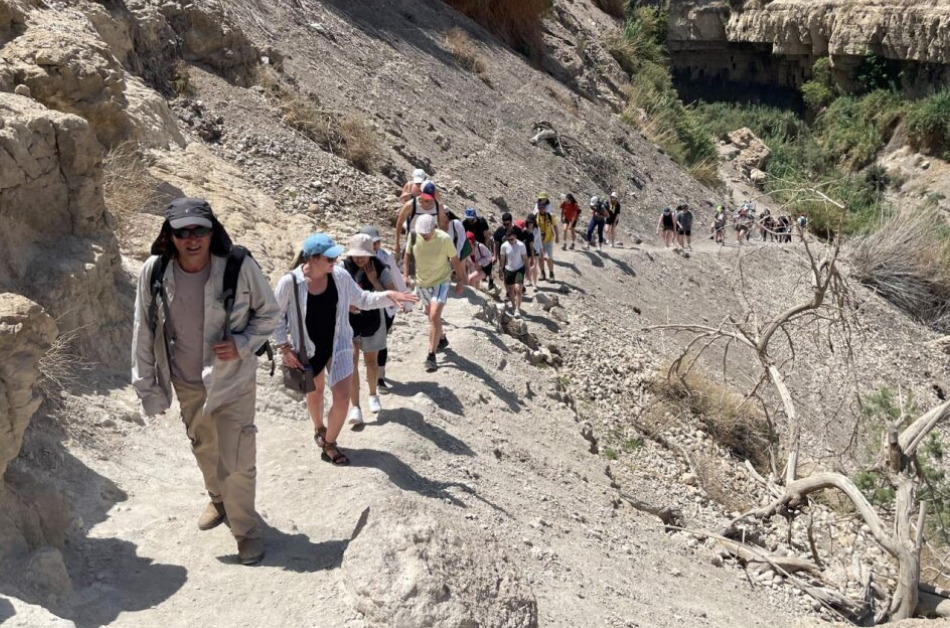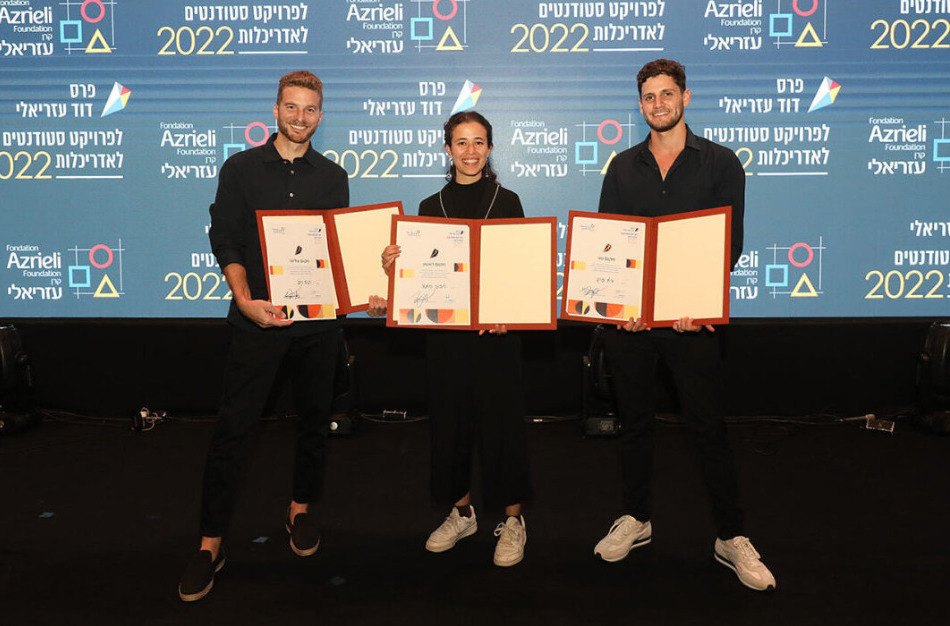On May 16th students from the Studio 1:1 course in the Faculty of Architecture at Technion University unveiled a prototype bus shelter that addresses the immediate problems of rural communities in the wake of the October 7 tragedy.
The bus stop was designed and built by students in collaboration with local communities, the municipality of Eshkol Negev Maarvi, the Ministry of Transport and a team of experts from various fields.
While the initial request from local communities focused on the issue of personal security in the face of rockets and mortars, the students learned to broaden the notion of “personal security” by listening more closely to the eventual users of the facility. What they learned in their consultations with the community included the need for emergency measures such as a two-way communications system in the event of an attack as well as other more practical needs such as charging stations for mobile phones, a Wi-Fi router for internet access and a water cooler to combat heat during the summer months. Residents also identified a need for a sensor-activated LED lighting system that changes from green to red to signal to bus drivers the presence of waiting passengers.
Beyond safety and comfort, the prototype represents a significant milestone as a model of social impact and innovative and sustainable design principals. For example, the bus shelter incorporates:
- A modular Israeli-patented iForm Construction System. This allows for pre-building at a central location and transportation to the site using conventional trucks despite the size of the structure of almost 10 meters, minimizing disruption in rural areas.
- Sustainable Materials: Recycled aggregate concrete and biodegradable eucalyptus wood panels that minimize environmental impact.
This prototype will serve as a model for future bus stops nationwide, improving access to public transport in rural communities.
“By providing students with practical skills and a problem-solving mindset and learning to work with an interdisciplinary team of experts on a design project, we are nurturing architects who will not only create visually appealing structures but also address crucial social needs and advocate for sustainable design solutions.”
– Gili Shapira, director of the Azrieli Architecture Center
Funded by the Azrieli Foundation, Studio 1:1 is an immersive learning program that is centered on the “design-build” teaching model, which incorporates architectural theory and social responsibility. The Studio gives students a unique opportunity to take on a building project that addresses the specific needs of underserved neighborhoods and communities, responding to the challenging reality Israel is experiencing post-October 7.
The Studio aligns with the Azrieli Foundation’s commitment to supporting innovative educational programs that empower future generations to engage with society and make a meaningful impact.
Gili Shapira, director of the Azrieli Architecture Center which includes the Studio 1:1 program, said at the event, “Studio 1:1 is a great example of how education can empower both the next generation of designers and the communities that they will be designing for,” she said. “By providing students with practical skills and a problem-solving mindset and learning to work with an interdisciplinary team of experts on a design project, we are nurturing architects who will not only create visually appealing structures but also address crucial social needs and advocate for sustainable design solutions.”





